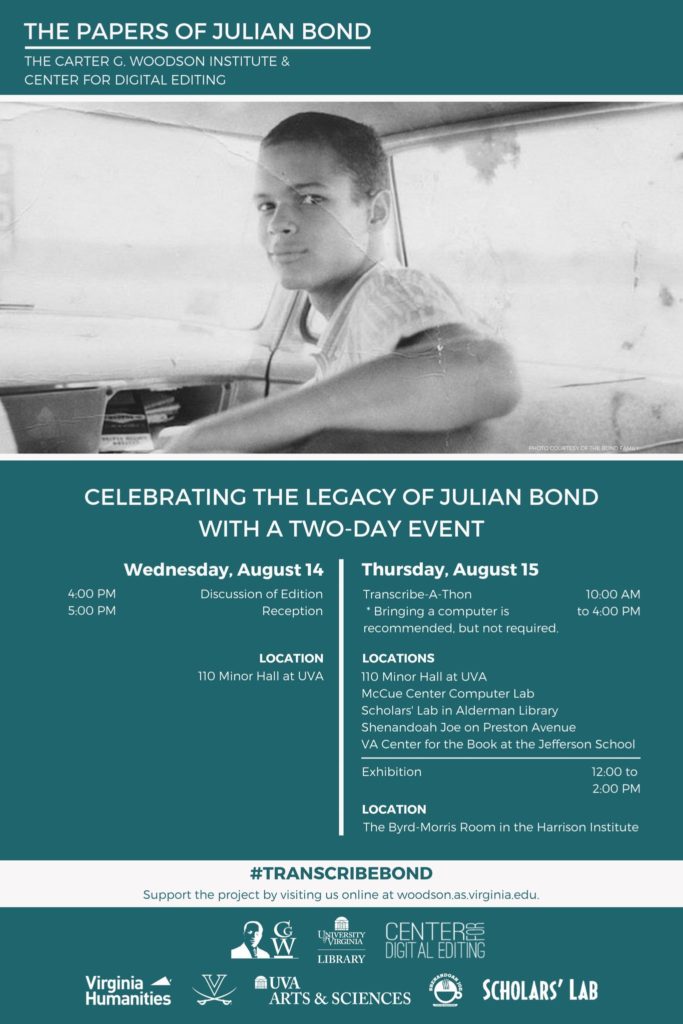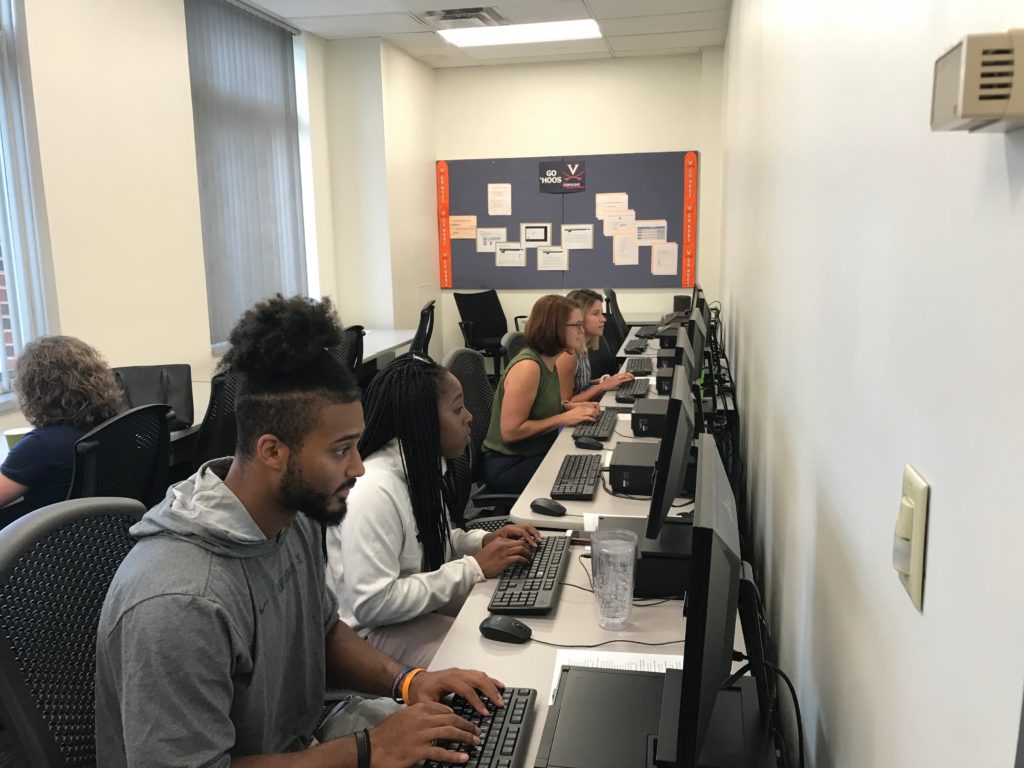
An interview with James Perla, the Managing Director of the Citizen Justice Initiative at the University of Virginia's Carter G. Woodson Institute for African American and African Studies, about their ongoing Julian Bond Papers Project and their recent Bond Transcribathon.
What are your goals for the project?
The Julian Bond Papers project seeks to create a documentary edition— print and digital— of the Papers of Julian Bond, housed in the University of Virginia’s Special Collections Library.
Can you tell us about your documents?
The first stage of the project will focus primarily on Julian Bond’s speeches and public addresses; however, the full collection also contains other manuscripts: letters and correspondence, political posters, newsletter mailing campaign documents, and photographs created by Bond himself as well as members of the Student Nonviolent Coordinating Committee (SNCC)
How are you recruiting or finding volunteers/collaborators?
A large part of this project involves public engagement. We want to involve members of the general public in putting Bond’s papers online. The primary way in which the public has contributed to this project so far is through transcribe-a-thon events. Two years in a row, we hosted an event in which people transcribed materials from his collection in different locations around our university and the contiguous city of Charlottesville. The all-day event brought over 100 people each year and resulted in 1,000 or more transcribed pages.
Beyond this, it’s a major goal to involve students in all aspects of the process of creating a documentary edition: scanning, cataloging, transcribing, metadata entry, and curating project derivatives. To this end we have employed close to 10 students so far in the lifetime of the project. We believe this is critical because such exposure can show students the possibility for having a career in digital archiving, library studies, and/or public humanities.

Can you share your experience using FromThePage?
Using FromThePage had been helpful in involving members of the general public in the process. The platform has been intuitive and has allowed us to make progress with a critical aspect of the larger initiative. To date, we have over 3300 pages transcribed. The main challenge of using the platform has been the inability for multiple people to edit a single document or for a user to see if another person is transcribing a document. Since we had multiple locations for our transcribe-a-thon event, we ended up duplicating documents for each location rather than attempt to coordinate which user is transcribing which document across the various locations.
How does FromThePage & crowdsourcing fits with more traditional documentary editing?
It’s a critical aspect of our mission to involve the general public and students in the broader process of creating a documentary edition. We see crowdsourcing and FromThePage as an important opportunity to both expose the public to the documents prior to the documentary editing as well as involve them in seeing some of the questions and issues that arise during a traditional documentary editing project. For example, during our most recent transcribe-a-thon, the “notes” function on FromThePage was extremely helpful as certain transcribers would track their progress and ask questions like: “this paragraph contains an insert that supersedes the existing text, so I did not transcribe the existing text.” These types of observations demonstrate the kinds of judgment calls that the editorial team will ultimately have to make.
What would you tell folks considering a similar project?
I would encourage people to focus attention on file management and tracking metadata. We use a shared spreadsheet to track item level information from the scanned documents so that we can ultimately link the From the Page transcriptions to a separate database. In order to do this, we must track the file names associated with items so that we can transfer data between the two sites.
Bonus link! Here's a Julian Bond transcribathon video on Twitter:
